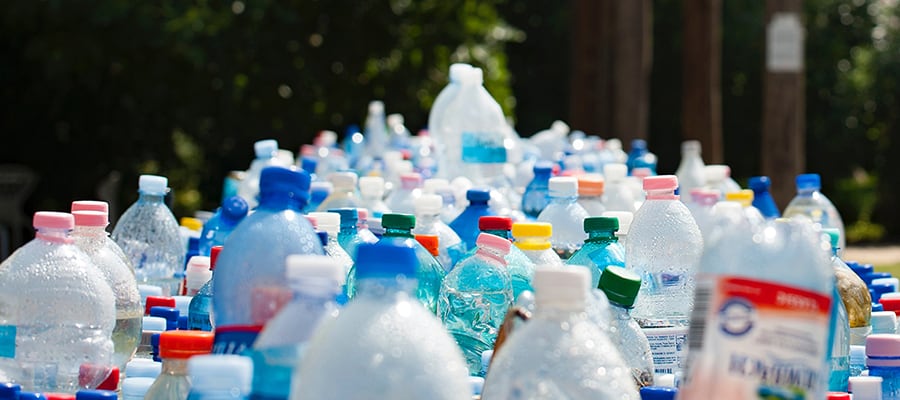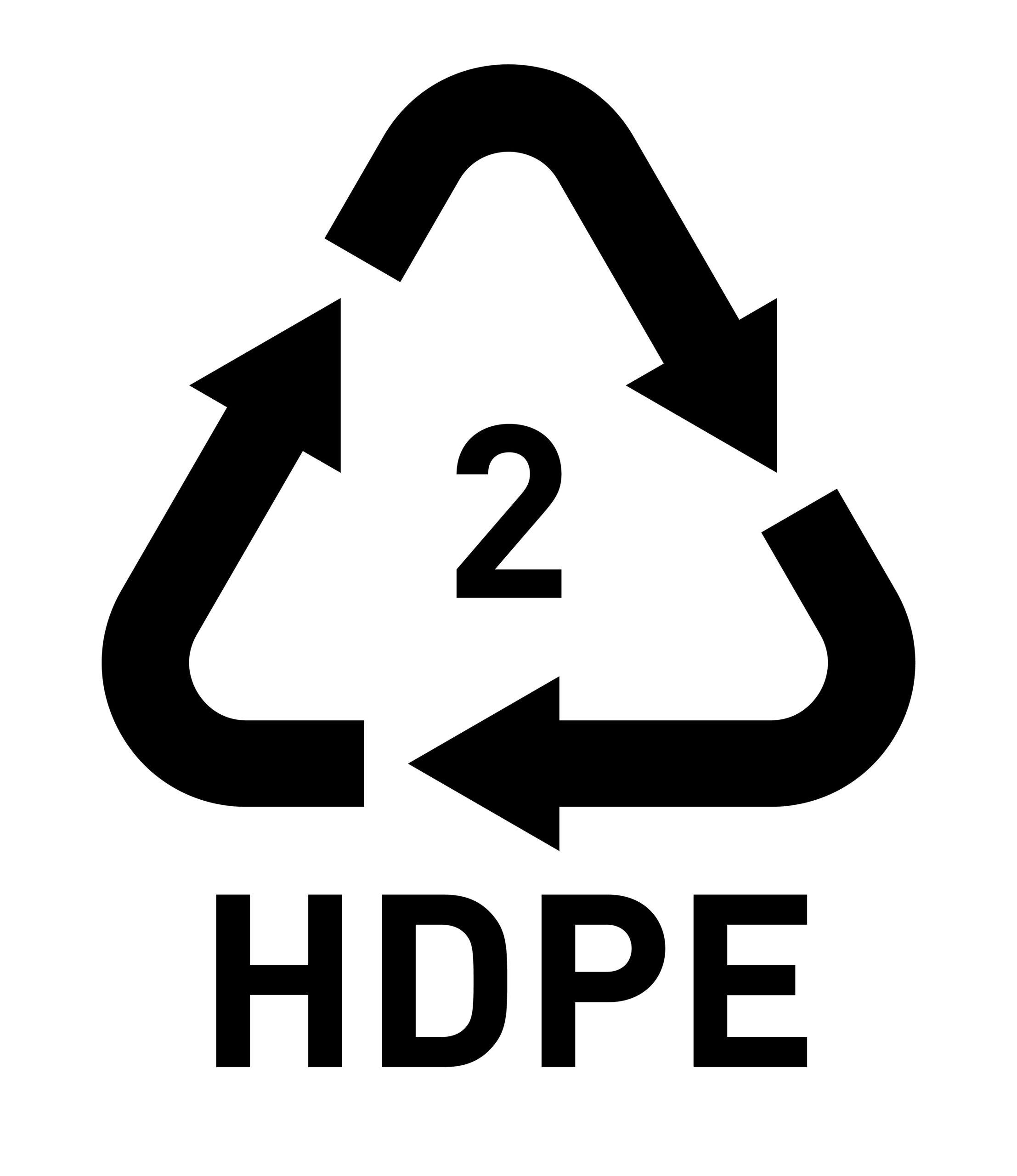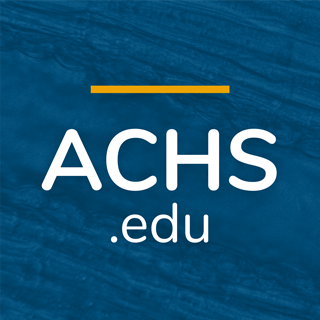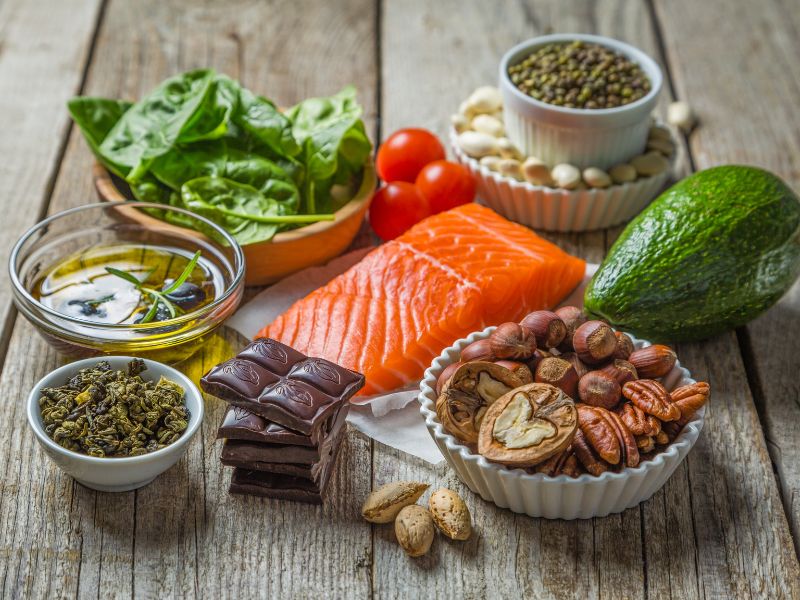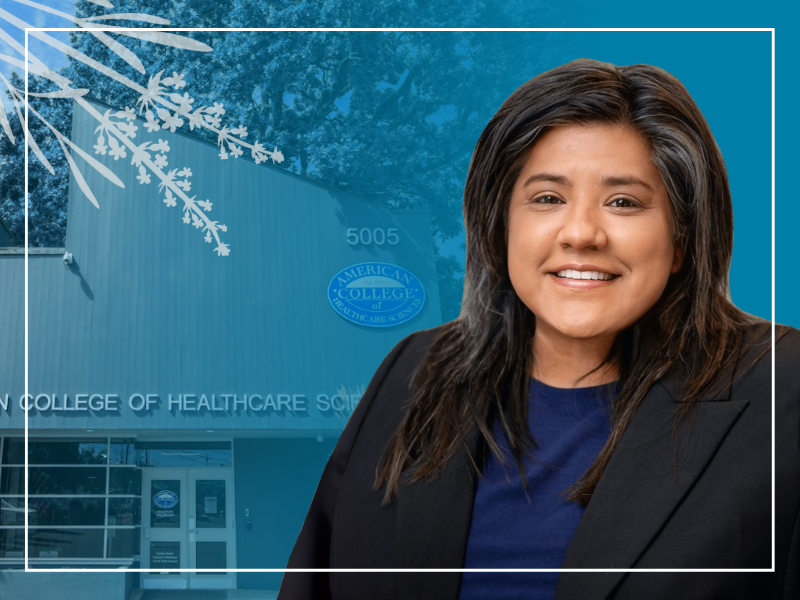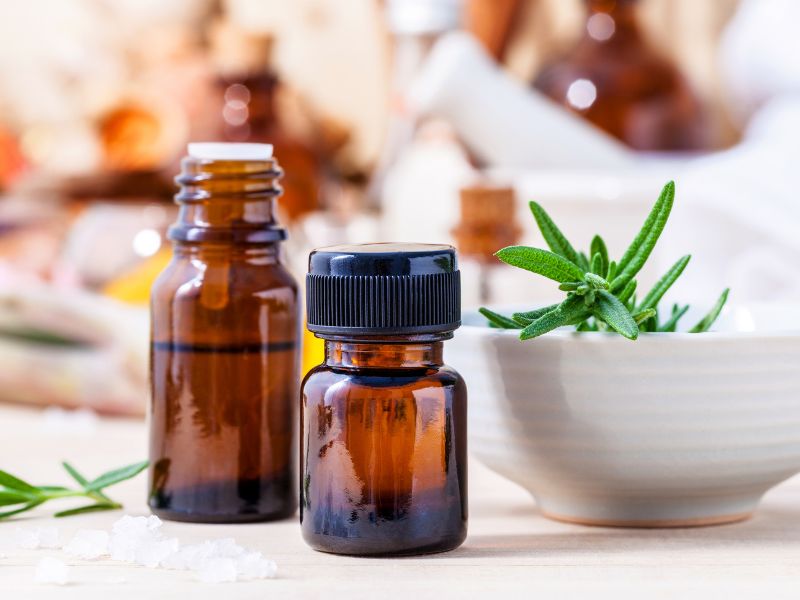In her webinar Plastic Free: Healthy Body, Healthy Planet, Dr. Jacqui McGrath talked about how not all plastic are created equal, and in fact some are worse to use than others. While ideally we would all be leading plastic-free lives, it is difficult or impossible to do so in our society where plastic is so ubiquitous. So, the best we can do is educate ourselves and limit our exposure to plastic the best we can.
Types of Plastic
Different types of plastic have different recycling codes from 1 to 7 imprinted in the plastics. According to Healthychild.org, some are safer than others [2]:
- Safer choices are coded 1, 2, 4 and 5.
- Avoid 3, 6 and most plastics labeled 7.
Below is an overview of each type of plastic:
 Plastic #1
Plastic #1
Usually labelled with PET or PETE, Plastic #1 is made of polyethylene terephthalate. It’s one of the most commonly recycled types of plastic. Soft drink bottles, salad dressing bottles, and more are made from PETE. PETE contains phthalates, which “have been linked to a wide range of health concerns, including endocrine disruption” [1]. It’s not a good idea to reuse, reheat, or freeze PETE plastic because the plastic could leach into the food or liquid inside.
Plastic #2
Plastic #2 is HPDE, or high density polyethylene. Milk bottles, juice bottles, dish soap liquid bottles, and shampoo bottles are usually HPDE.
Plastic #3
Plastic #3 is PVC, or Polyvinyl Chloride. Cables, pipes, and occasionally bottles are made from it. Dr. McGrath says to avoid PVC because “the manufacture of PVC creates dioxin, a potent carcinogen that contaminates humans, animals and the environment. PVC also usually contains phthalates” [2]. Furthermore, PVC is usually not recyclable.
Plastic #4
Plastic #4 is LDPE, or Low Density Polyethylene. Plastic shopping bags, garbage bags, and plastic wrap are made from it.
Plastic #5
Plastic #5 is Polypropylene, or PP. Ice cream and yogurt containers, drinking straws, syrup bottles, salad bar containers and diapers, are all made from Polypropylene.
Plastic #6
Plastic #6 is Polystyrene, or PS. Styrofoam cups and plastic utensils are made from it. Dr. McGrath says to avoid Polystyrene, because “it can leach styrene, a known neurotoxin with other harmful health effects” [2].
Plastic #7
Plastic #7 is the designated category for any plastics that didn’t fit into the first 6 categories, so it can vary. It can include polycarbonate, bioplastic, and acrylic. Dr. McGrath says to avoid polycarbonate because it contains BPA. Some examples of polycarbonate items are sports water bottles, five gallon water jugs, and clear plastic cutlery.
Now that you know a little more about the different types of plastic, you can be better informed in your daily life. Wishing you a happy Plastic-Free July!
Join us and help reduce plastic use!
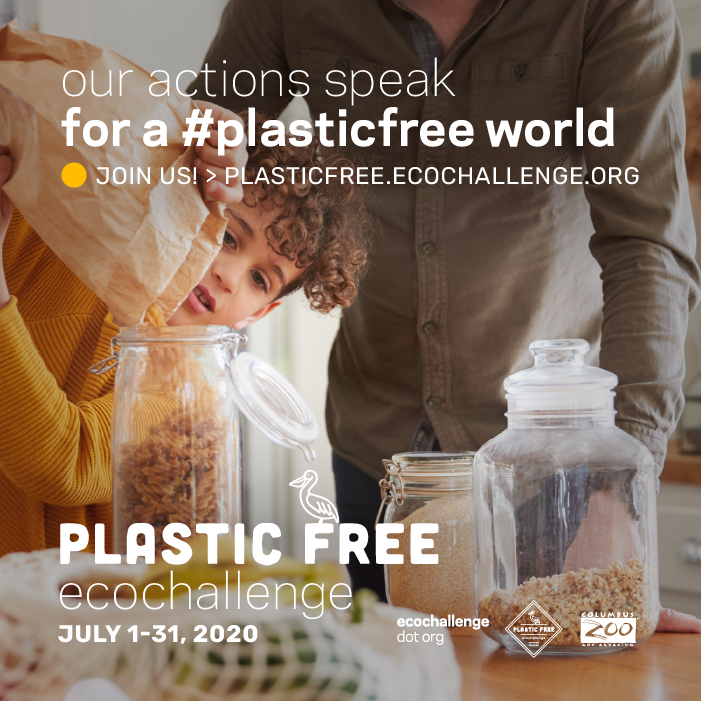 The Plastic Free Ecochallenge is a 31-day, global challenge to reduce and refuse single-use plastics. As they explain on their website, “throughout the Ecochallenge, share your progress, success, and reflections with fellow Ecochallengers, all while earning points for completed actions.”
The Plastic Free Ecochallenge is a 31-day, global challenge to reduce and refuse single-use plastics. As they explain on their website, “throughout the Ecochallenge, share your progress, success, and reflections with fellow Ecochallengers, all while earning points for completed actions.”
Join the ACHS Ecochallenge Team and help us earn points throughout the month! If our ACHS Team scores 10,000 points in the Ecochallenge through completing sustainable actions, the college will donate $1,000 to a local sustainable farm that represents ACHS values: Mudbone Grown.
References:
[1] Phthalates. (2019, March 27). Retrieved July 08, 2020, from https://www.madesafe.org/science/hazard-list/phthalates/
[2] Know Your Plastics • Healthy Child Healthy World. (2015, July 14). Retrieved July 02, 2020, from http://healthychild.org/know-your-plastics/
[2] Pochepetskyi, A. (2020, January 17). Types of Plastic – A Complete Plastic Numbers Guide. Retrieved July 02, 2020, from 3ttps://yesstraws.com/blogs/news/types-of-plastic-plastic-numbers-guide
[4] Adams, V., Nadal, R., & Stephens, D. (2018, May 16). Recycling symbols for plastic – signs of our times. Retrieved July 02, 2020, from http://ealingnewsextra.co.uk/features/recycling-symbols/
Disclosure of Material Connection: This blog may contain affiliate links. I am disclosing this in accordance with the Federal Trade Commission’s 16 CFR, Part 255: “Guides Concerning the Use of Endorsements and Testimonials in Advertising.
This article is for informational purposes only. It is not intended to treat, diagnose, cure, or prevent disease. This article has not been reviewed by the FDA. Always consult with your primary care physician or naturopathic doctor before making any significant changes to your health and wellness routine.
About American College of Healthcare Sciences
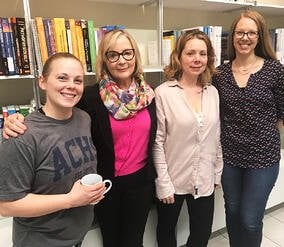 American College founded in 1978, is a fully online accredited institute of higher education specializing in holistic health. Based in Portland, OR; our goal is to make research-driven and science-based holistic health education taught by industry-leading experts accessible to anyone anywhere while still giving students a hands-on experiential learning experience like a traditional college and a strong sense of community, school pride and student bond.
American College founded in 1978, is a fully online accredited institute of higher education specializing in holistic health. Based in Portland, OR; our goal is to make research-driven and science-based holistic health education taught by industry-leading experts accessible to anyone anywhere while still giving students a hands-on experiential learning experience like a traditional college and a strong sense of community, school pride and student bond.
This commitment to our students and graduates reflects in our current survey results that reflect 98% of our students would recommend ACHS to a friend or family member.
We believe education is the most powerful tool for changing an individual and the world around us.
When a person enrolls as ACHS, it is vitally important that they graduate with tools they need to forge their own holistic and sustainable missions, build up their communities confidently and changing the face of healthcare with knowledge.
For more information visit achs.edu
